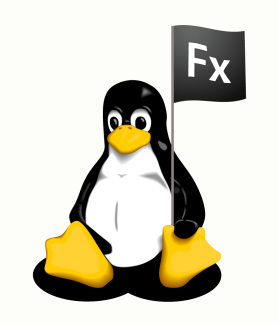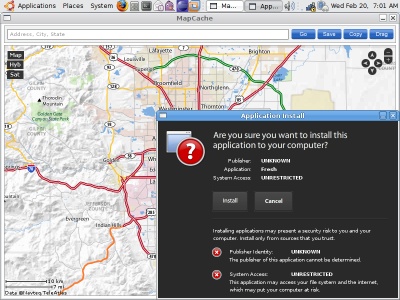Video: Desktop RIAs on Linux with Adobe AIR 1.5
Adobe recently announced the release of Adobe AIR 1.5 for Linux! For us Linux users this is huge! Now desktop RIAs with Adobe AIR work the same on Windows, Mac, and Linux! I recorded a short instructional video that shows how to get it working.
(Original video size is 1024 x 768 so you might want to <a href="/air_on_linux"target=”_blank” >open it in a new window or tab.)
 Revolutions may be enabled by technology, but they are driven by people. Adobe’s recent announcements about Flex, Flash, and Adobe AIR on Linux are the most recent technology enablers for the software revolution that is currently underway.
Revolutions may be enabled by technology, but they are driven by people. Adobe’s recent announcements about Flex, Flash, and Adobe AIR on Linux are the most recent technology enablers for the software revolution that is currently underway.